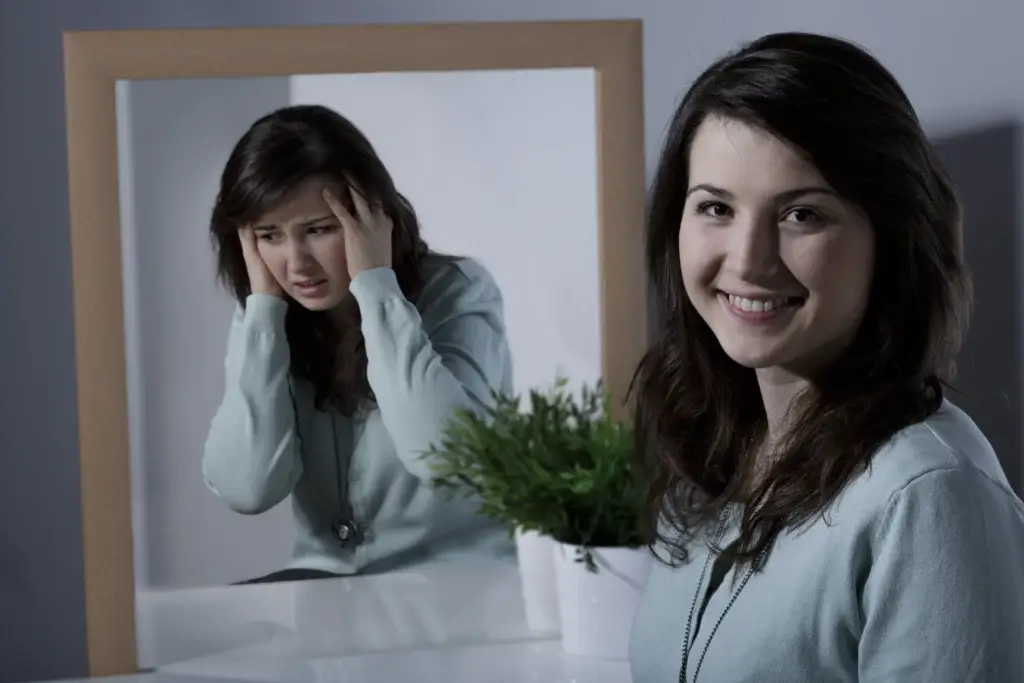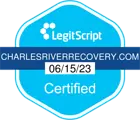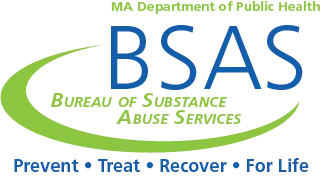The Connection Between Drug Abuse and Bipolar Disorder
Nearly 49 million Americans aged 12 and older have a substance use disorder (SUD) of some kind, according to the most recent data available from the 2022 National Survey on Drug Use and Health.
For those not familiar with the term substance use disorder or SUD, it refers to a condition that affects an individual’s brain and behavior in such a way that it leads to an inability to control the use of a drug. Alcohol use disorder (AUD) and drug use disorder, both the prescription and street-level variety, fall under the umbrella of an SUD. Whether it’s opioids, stimulants, marijuana, alcohol, or some other drug, substance abuse can severely upend someone’s life. If they also have a co-occurring condition, such as bipolar disorder, their lives become even more complicated.
Shedding Light on Co-Occurring Disorders
Much like addiction, co-occurring disorders are common in the U.S. A co-occurring disorder, also known as a dual diagnosis, refers to the coexistence of a substance use disorder and a mental illness. The National Survey on Drug Use and Health quoted above found that approximately 21.5 million adults in the United States had co-occurring disorders in 2022. Some of the most commonly diagnosed mental illnesses that are part of a dual diagnosis include the following:
- Anxiety
- Attention-deficit hyperactivity disorder (ADHD)
- Conduct disorders
- Major depressive disorder (MDD)
- Post-traumatic stress disorder (PTSD)
- Schizophrenia
When it comes to co-occurring disorders, some substance abuse problems are more common than others. Available data shows that most people who have a co-occurring disorder have a problem with these substances:
- Alcohol
- Hallucinogens
- Marijuana
- Opioids
- Prescription drugs
- Stimulants
Bipolar Disorder and Substance Abuse: An Emerging Trend in Co-Occurring Disorders
Bipolar disorder, as defined by the American Psychiatric Association’s Diagnostic and Statistical Manual of Mental Disorders, Fifth Edition (DSM-5), is a group of brain disorders known to trigger extreme fluctuations in a person’s mood, energy, and ability to function. And it is being seen more and more in people with co-occurring disorders. Bipolar disorder can adversely affect sleep, energy, judgment, behavior, and the ability to think clearly and rationally. Of course, when substance abuse becomes part of that equation, these negatives become greatly amplified. Before detailing the extent to which that is the case, let’s take a moment to learn more about bipolar disorder in and of itself.
There are four types of bipolar disorder. The first is bipolar I disorder, which is characterized by manic episodes lasting seven or more days or manic symptoms severe enough to require immediate medical care. Some people with bipolar I disorder may experience both manic and depressive episodes simultaneously. This is known as bipolar disorder with mixed features. Of the four known types of bipolar disorder, bipolar I disorder is by far the most common.
The second type of bipolar disorder is bipolar II disorder, which is associated with a pattern of both depressive and hypomanic episodes. Compared to bipolar I disorder, these episodes are not as severe. However, individuals with bipolar II disorder can experience long-term depressive episodes that often lead to significant impairment. Those suffering from bipolar II disorder are also more likely to fall victim to substance abuse, according to the American Psychiatric Association.
The third type of bipolar disorder is cyclothymic disorder, a form of the disease that triggers recurring hypomanic and depressive symptoms, which are milder and shorter in duration than those triggered by bipolar I and bipolar II disorder. Like bipolar II disorder, individuals with cyclothymic disorder are more likely to develop a drug or alcohol addiction due to the sensation-seeking and self-stimulating behavior that goes hand in hand with the disorder. They are also more likely to engage in pathological gambling, compulsive sexuality, and binge eating.
The fourth type of bipolar disorder is unspecified bipolar disorder. If someone exhibits bipolar symptoms that do not fully meet the diagnostic criteria of bipolar I, bipolar II, or cyclothymic disorder, a mental health professional may diagnose them with unspecified bipolar disorder. Like bipolar I, bipolar II, and cyclothymic disorder, unspecified bipolar disorder is strongly correlated with substance abuse and addiction.
Bipolar Disorder Symptoms
Depending upon whether someone is experiencing manic, hypomanic, or depressive episodes, bipolar disorder symptoms can vary. According to the Mayo Clinic, a nonprofit academic medical center in Rochester, Minnesota, symptoms typical of manic and hypomanic episodes associated with bipolar disorder include the following:
- Decreased need for sleep
- Feelings of euphoria
- Increased activity, energy, or agitation
- Lack of focus
- Poor judgment
- Racing or ruminating thoughts
- Unusually talkative, upbeat, or jumpy
Depressive episodes caused by bipolar I, bipolar II, or cyclothymic disorder can trigger the following symptoms:
- A lack of focus and an inability to concentrate
- Changes in appetite
- Fatigue
- Feelings of guilt or worthlessness
- Insomnia or hypersomnia
- Restlessness
- Suicidal ideations
Bipolar Disorder and Suicide
All forms of bipolar disorder can increase the chances of someone taking their own life. According to a study published by the National Institutes of Health (NIH), individuals with bipolar disorder are 10 to 30 times more likely to die by suicide than those without the disorder.
When substance abuse becomes part of that already troubling equation, individuals are even more likely to end their lives. And there are several reasons why. When someone abuses drugs, alcohol, or both, it worsens their bipolar disorder symptoms, which, in turn, makes coping with the disorder that much harder. That’s especially true if they are struggling with depressive episodes. It is also worth noting that substance abuse can give rise to impulsive behavior, which further increases the risk of suicide.
If someone has bipolar disorder and does not receive treatment, they are at an even greater risk of committing suicide. The same NIH study found that individuals with untreated bipolar disorder are up to 60% more likely to attempt suicide compared to those who do seek treatment and those not suffering from the disorder.
Can Drug Abuse Cause Bipolar Disorder?
There is no scientific evidence linking substance abuse to bipolar disorder, but there is plenty of evidence to suggest that substance abuse can worsen its effects. There is also a growing body of evidence suggesting that genetics can play a role in determining who develops bipolar disorder. One study published by the American Psychiatric Association found that individuals who have a family member with bipolar disorder are 80% to 90% likely to develop the disorder themselves.
Another study from the National Health Service (NHS) shows that chemical imbalances in the brain may put some people at a heightened risk of developing bipolar disorder, especially above-average or below-average noradrenaline, serotonin, or dopamine levels. For some people, stressful events can also open the door to the disorder. Examples of these include the following:
- A failed relationship or marriage
- Physical, sexual, or emotional abuse
- The death of a friend or family member
Treatments for Addiction and Bipolar Disorder
If you’re struggling with a substance use disorder alongside bipolar disorder, addiction recovery programs at a licensed rehab facility can help. If you decide to seek treatment, you should know that there is no known cure for bipolar disorder. The focus of these programs is to help people overcome their addiction to drugs or alcohol and to teach them how to better cope with their disorder.
These facilities, like others all across the United States, recognize that many people struggling with bipolar disorder self-medicate to make coping with the disorder easier and, in doing so, eventually develop an addiction. This grim reality is well substantiated in numerous studies, one of which comes from NIH. It revealed that as many as 41% of people with bipolar disorder self-medicate with alcohol or drugs to cope with their disorder. Bearing all that in mind, effectively treating addiction and bipolar disorder requires a multipronged approach.
The Benefits of a Multipronged Approach to Treating Addiction and Bipolar Disorder
Research consistently shows that people struggling with co-occurring disorders, particularly those involving bipolar disorder, achieve better treatment outcomes when their addiction and mental health problems are addressed and treated together. Cognizant of this, most rehab facilities offer medication-assisted treatments to help individuals end their relationship with drugs or alcohol and various forms of psychotherapy to help improve their mental health. The first part of this multipronged approach to treatment involves detoxification.
Detox is the body’s way of ridding itself of harmful contaminants once someone stops abusing drugs, alcohol, or both. For alcohol, detox starts within 24 to 72 hours after someone consumes their last alcoholic beverage. For short-acting opioids, detox begins 8 to 24 hours after someone takes their final dose. And for benzodiazepines, detox starts 24 to 48 hours after someone consumes the last dose of their preferred drug. While going through their detox journey, most people experience withdrawal symptoms that can make addiction recovery challenging. Some of the most common withdrawal symptoms associated with detox include the following:
- Agitation
- Anxiety, depression, and irritability
- Changes in appetite
- Fatigue
- Confusion
- Insomnia
- Gastrointestinal problems
- Headaches
- Muscle aches
- Profuse sweating
- Seizures and tremors
Medication-assisted treatments offered by most rehab facilities to help individuals cope with challenging withdrawal symptoms while going through detox include round-the-clock monitoring by a licensed physician and FDA-approved prescription medications. Some of the medications physicians prescribe the most include methadone, buprenorphine, and naltrexone. Other medications include lofexidine, bupropion, acamprosate, and disulfiram. To address an individual’s struggles with bipolar disorder, the physician in most rehabs will provide the following medications:
- Antidepressants
- Benzodiazepines
- Antipsychotics
- Anticonvulsants
- Mood stabilizers
As in other states, many rehab facilities in Massachusetts have licensed therapists who provide various forms of psychotherapy to help people further cope with bipolar disorder symptoms. One of the most popular is cognitive behavioral therapy (CBT). A type of talk therapy, CBT is a form of psychotherapy that involves a therapist helping individuals identify and change negative patterns of thinking associated with emotional problems.
Another popular go-to is motivational interviewing (MI). This psychotherapy modality involves a therapist working with an individual to help them find the internal motivation needed to make positive behavioral changes. Solution-focused therapy (SFT) and trauma therapy are also common psychotherapy modalities used to treat bipolar disorder.
In summary, many people who have a substance use disorder also suffer from a co-occurring disorder, such as bipolar disorder, which significantly worsens their condition and increases their chances of committing suicide. However, there is a silver lining: Many rehab facilities have treatment programs that can help clients regain control of their lives. To learn more or to find out what treatments are right for you, consider scheduling a consultation with a Charles River Recovery associate today.






